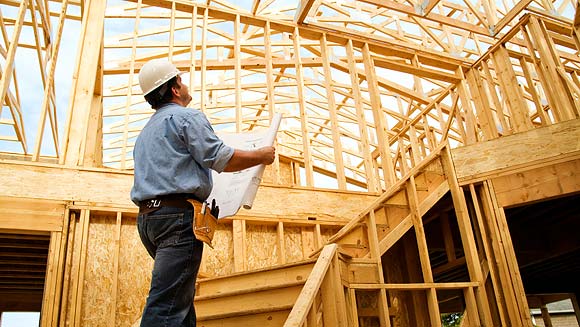When it comes to embarking on a home construction project, there’s no denying the excitement it brings. The prospect of designing and seeing the construction is a journey filled with anticipation. However, it’s also a complex process that can overwhelm without proper guidance. That’s why we have written this article. In this post, we’ll delve into the seven stages of the home construction process, why they’re important, and how you can realize your dream home in the end.

7 Stages of the Home Construction Process
Let’s start at the beginning. That’s smart, right? Whether you’re buying an existing home to going the new construction route, they have totally different roads. Keep reading to begin your journey.
1. Clear Vision and Goals
A clear vision and well-defined goals are the cornerstones of a successful home construction project. It’s also the first of seven stages of the home construction process. Once determined, they outline your dream home’s overall look and feel. It also sets the tone for the entire project.
In other words, specific and achievable goals provide a roadmap for your construction journey. These goals include everything from budget constraints to design preferences, ensuring that every aspect of your project aligns with your vision. Despite what some might think, it’s critically important to understand the answer to the following question: “Do I need a Realtor when buying new construction?” Having a trusted expert on your side throughout the process is incredibly valuable even at this vision-setting stage.
2. Budgeting is Essential
Budgeting stands as a foundational pillar in the realm of home construction. It serves as the compass that guides your project, ensuring it stays on course and avoids financial pitfalls.
Typically, a carefully crafted budget outlines the total cost and breaks it into various categories, from architectural design to interior finishes. It allows you to allocate funds wisely, prioritize essential aspects, and make informed decisions. It comes in handy when any unexpected costs arise.
Not to mention, a well-managed budget instills confidence in the project’s viability. Thereby, it provides you peace of mind throughout the construction journey.
3. Choose the Right Location
Third on our list of stages of the home construction process is location. It matters immensely! This decision greatly influences the home’s value and comfort. Consider factors like proximity to work, schools, and amenities. Also, think about safety and the neighborhood’s reputation.
Furthermore, it is key to assess the climate and natural disaster risks. Evaluate the future development potential of the area: research local zoning regulations and building codes. You can even engage with the local community to gain insights.
Remember that a thoughtful choice of location ensures a happy and secure living environment for years to come.
4. Hire a Construction Service
Begin by researching and collecting recommendations from trusted sources, such as friends or family. They can provide valuable insights based on their personal experiences. Another approach is to search for a premiere construction service near you on your browser. This will help you get access to a top construction service company that can bring your residential project vision to life by managing all aspects of a build.
But remember, communication is critical throughout the project, so maintain open and regular dialogue with the contractor. By taking these steps, you can hire a construction service that meets your needs and delivers a satisfactory result.
5. Permits and Regulations
Obtaining permits and adhering to regulations are crucial when undertaking construction projects. These legal requirements ensure the safety and compliance of the project. Start by researching the specific permits needed for your project at the local government level. Contact the relevant authorities to understand the application process and submission deadlines.
As stated above, it’s essential to familiarize yourself with building codes, zoning ordinances, and environmental regulations applicable to the project’s location. It’s because failure to comply with these regulations can lead to costly delays or even project shutdowns. You can even hire a professional contractor who is well-versed in local regulations to get their assistance for permits and regulations. Keep meticulous records of all permits and approvals, which may be required for inspections and future reference.
6. Regular Supervision
Regular supervision during a construction project is essential to ensure quality, safety, and timely completion. This involves consistent oversight and monitoring of all aspects of the project. A dedicated supervisor or project manager should be appointed to oversee daily activities, coordinate with subcontractors, and address any issues promptly.
Supervision helps identify and rectify potential problems early, preventing costly errors and delays. It ensures that work is carried out according to plans, specifications, and safety standards. Regular inspections and progress checks help maintain quality control.
Remember, regular supervision is imperative to successfully complete any construction project. It contributes to their efficiency, quality, and overall success.
7. Completed Project
The last of our stages of the home construction process is finishing the build. Creating your dream home is an art and a journey, requiring meticulous planning and clear vision. By understanding the important factors in construction, you can navigate this path with confidence and ease. Whether choosing the suitable location materials or liaising with professionals, having a roadmap simplifies the process.
Finally, with the right knowledge, turning dream homes into reality becomes rewarding and seamless.



